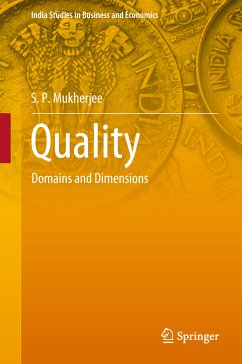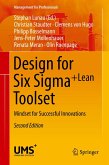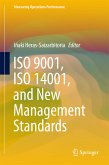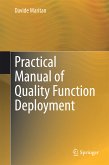This book offers a comprehensive overview of quality and quality management. It also explores total quality management, covering its human, technological and analytical imperatives. It also examines quality systems and system standards, highlighting essential features and avoiding a reproduction of the ISO 9000 standard, as well as people-related issues in implementing a quality system. A holistic understanding of quality considerations, which now permeate every aspect of human life, should guide related policies, plans and practices. The book describes the all-pervasive characteristics of quality, putting together diverse definitions of "quality," outlining its different dimensions, and linking it with reliability and innovation. It goes on to assess the quality of measurements in terms of precision, accuracy and uncertainty and discusses managing quality with a focus on business performance. This is followed by a chapter on improving process quality, which is the summum bonum of quality management, and a chapter addressing the crucial problem of measuring customer satisfaction through appropriate models and tools. Further, it covers non-traditional subjects such as quality of life, quality of working life, quality assurance and improvement in education, with special reference to higher education, quality in research and development and characterizes the quality-related policies and practices in Indian industry. The last chapter provides a broad sketch of some recent advances in statistical methods for quality management. Along with the research community, the book's content is also useful for practitioners and industry watchers.
Dieser Download kann aus rechtlichen Gründen nur mit Rechnungsadresse in A, B, BG, CY, CZ, D, DK, EW, E, FIN, F, GR, HR, H, IRL, I, LT, L, LR, M, NL, PL, P, R, S, SLO, SK ausgeliefert werden.









